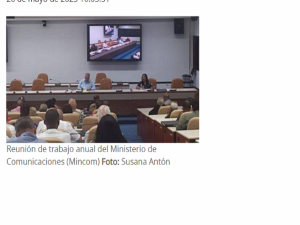
The goal for the year is to install 16,000 new landlines -which at the end of March amounted to 5,864- and increase by no less than 39,566 the amount of homes with Internet access, which already reaches 14,014.
How much more can the Ministry of Communications (Mincom) do in the development of the digital transformation of the country, as a higher stage of the computerization of society?To this end, it is proposed, as projections, to develop the infrastructure and public telecommunications services, achieve the analogue to digital transition in the central region of the country, develop the infrastructure of the Correos de Cuba Business Group (GECC) and the Cuban computer applications and services industry, strengthen the cybersecurity system, improve the science, technology and innovation system and knowledge management, and consolidate the computerization of processes.
That’s how head of the sector, Mayra Arevich Marín, remarked it at the annual work meeting chaired by the member of the Political Bureau and Prime Minister, Manuel Marrero Cruz; the member of the Secretariat of the Central Committee of the Party and head of its Department of Service Services, Yudí Rodríguez; Vice Prime Minister Jorge Luis Perdomo Di-Lella and the president of the Service Care Committee of the National Assembly of People’s Power.
THE MAIN OBSTACLES
Arevich Marín said that the economic, financial and commercial blockade imposed by the United States government on Cuba constitutes the main obstacle to having a better Internet flow and access to Information and Communications Technologies (ICTs).
However, internally, there is still insufficient awareness concerning the employment and use of ICTs, as well as a lack of perception of the risks by both the population and entities.
There is also insufficient progress in the implementation of the digital procedures services, little use of digital signatures in the country, no consolidation of the development industry and computer services, technological obsolescence in infrastructure and computer equipment is maintained, as well as a deterioration in the quality of telecommunications service due to financial problems.
INSISTING ON DIGITAL LITERACY
The Prime Minister commented on the dimensions of the blockade and its real impact on the country, the impact of the pandemic and international crises.
He added that in this sector -which requires constant updating in terms of technologies- a great effort was made to maintain the vitality of the telecommunications system, despite the limitations in investment processes and maintenance execution.
He called for the necessary quickness of development of e-government and e-commerce as part of the digital transformation process, which, in the case of electronic commerce, is essential so "it has to move to another stage of demand."
In this regard, he mentioned that electronic payments are a key issue concerning the demand for cash. He confirmed that the Government will do what is necessary to move forward in the implementation of its use.
“Anyone who offers services must have the possibility of receiving this kind of payment,” he noted.
He highlighted the role of the electronic wallet of ETECSA whose true scope is yet to be implemented, specifying that it must move to a higher stage getting the agencies involved to define the incentives that motivate users to adopt it.
On the other hand, he stressed that ignorance still prevails, so he highlighted the need to promote digital literacy. You can’t -he said- develop technologies if the main bosses do not have the required knowledge. “We must act to solve that.”
He stressed that the conveyance of information on digital processes and online services among institutions and citizens is essential to achieve more transparent and faster procedures.
Marrero Cruz specified that automation must be kept in the industry, which is something that cannot be done without alliances with this ministry.
He referred to the articulation with different economic stakeholders to support and boost the computerization of society, where this ministry is a reference, he said.
Instó a una creación de cultura en el uso responsable de las TIC, un punto donde el Mincom juega un papel clave, no solo en la capacitación de la población en general, sino también a las entidades.
He remarked the importance of encouraging the increase of awareness on the responsible use of ICTs, a point where the MINCOM plays a key role, not only in training the general population, but also entities.
He acknowledged that he was not satisfied with Correo de Cuba’s freight forwarding activity, which, he said, must be further improved.
It is essential, he said, to bet on our developments in terms of technological sovereignty, and he mentioned the applications of ToDus, Picta and Apklis as examples of that; and also concerning cybersecurity as defense of the Homeland and the challenge posed by artificial intelligence.
TELECOMMUNICATIONS INFRASTRUCTURE AND PUBLIC SERVICES
The minister reiterated that the Arimao submarine cable is already in operation after beginning its testing period in April.
Also, the goal for the year is to install 16,000 new landlines -which at the end of March amounted to 5,864- and increase by no less than 39,566 new homes with Internet access which already reach 14,014.
At this point, Arevich Marín pointed out that the demand in public telecommunications services is related, among other factors, to an increase in traffic because of the affordable prices.
She added that one of the goals is to grow by more than 150,000 mobile phone users, a figure that currently reaches 176,000 of a plan of 300,000, which represents an advantage for the people and a challenge for the sector; in addition to expanding the population coverage of 4G by 10%.
She remarked that actions to improve the quality of mobile services to the population continue, prioritizing actions that optimize and increase efficiency in the management of the network in the face of difficulties to undertake new investments.
DIGITAL PROCEDURES AND TELEVISION
With the beginning of the partial transition from analog to digital television in the central region -implemented in the western region with Havana still in process- and achieved a population coverage of 89% in standard definition and 60% in high definition.
Arevich Marín added that the goal of selling at least 50,000 digital television receivers to the population is maintained, a lower amount than what has been previously sold, caused by the current economic conditions of the national industry.
Another point highlighted was the achievement of the authorization concerning the digital payments of the tax on public documents (stamps) where there are still four institutions to be incorporated, but the proposal is to do so in September.
She emphasized that there are plans to expand the issuance of international money orders to two new countries and to extend this service to all municipalities -already 134- and to increase the extra cash services in 40 municipalities of the country that today just exist in 35 offices in 17 municipalities.
Arevich Marín highlighted the importance of technologically modernizing the GECC’s International Exchange Office because of the importance it holds in achieving a 10-day reduction in the delivery time of shipments to the population.
CUBAN INDUSTRY OF IT SERVICES AND APPLICATIONS
“Much remains to be done to strengthen the Cuban software industry,” acknowledged the Minister of Communications.
In that sense, she remarked as projections to increase the contribution of this industry to the economy, including exports, and to integrate the new forms of non-state management, state enterprises and the Scientific and Technological Parks of the sector.
She specified that the national catalog of telecommunications products and services must be completed, which will allow meeting municipal needs and continuing the migration to open source platforms and national production.





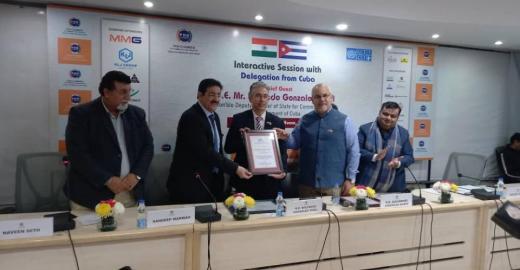

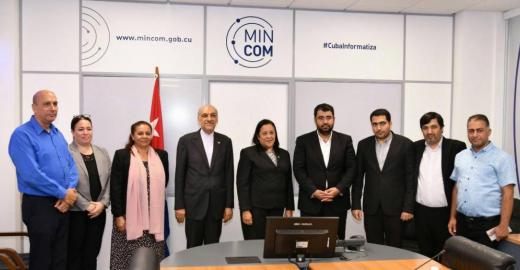





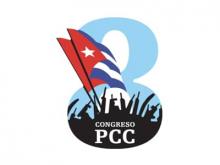
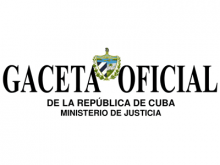
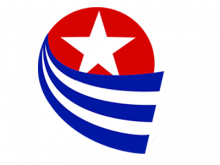
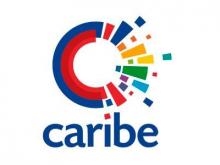
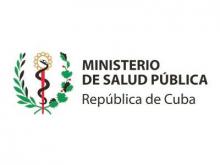

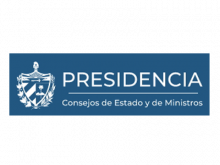

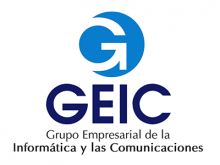
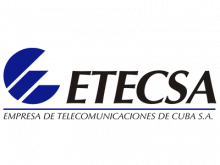
Publicar nuevo comentario